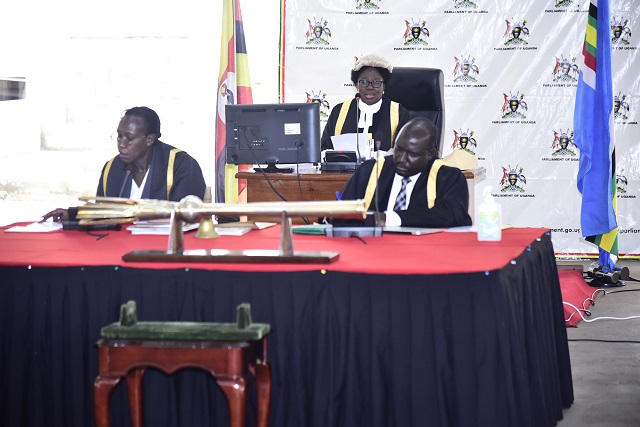
Kampala, Uganda | THE INDEPENDENT | Parliament has for the third consecutive year rejected a government proposal to tax businesses making losses in the coming financial year 2020/2021.
This was during a debate on Thursday in which MPs approved the Income Tax (Amendment) Bill, 2020 in a plenary session chaired by Speaker of Parliament Rebecca Kadaga.
For the past two financial years, the government has been pushing to tax businesses that have been making losses for seven consecutive years, a move parliament is against.
Now in the Income Tax (Amendment) Bill, 2020 presented to Parliament this year by the Minister of State for Planning David Bahati, the government renewed this proposal seeking an introduction of a minimum tax rate to apply to taxpayers whose declared tax liability for a consecutive period of five years is less than 0.5 percent of the gross income.
However, MPs rejected the proposal supporting a report by the Finance Committee presented by the Chairperson Henry Musasizi. Kasilo County MP Elijah Okupa said that the proposed tax was not making sense.
Kabula County MP James Kakooza said that government should not use the weakness of Uganda Revenue Authority Administration to tax Ugandans unfairly. He said that law should not be used to target people who are obedient and filing their returns.
The Minister of State for Finance Gabriel Aljedra noted that it had been discovered that most of the taxpayers take advantage of the generous tax provisions or engage into aggressive tax planning not to pay tax.
Musasizi said that the proposal had been rejected by parliament for the last two financial years and that their position on the matter had not changed.
“The 0.5 percent is a tax on turnover of companies that may be in a loss or near – loss income position and therefore goes against the basic principle that income tax is charged on income (not turn over). As the country strives to industrialize, this proposal will discourage potential long term investments which may take 10 and more years without making taxable profits but with potential for growth and employment, especially real estate, industrial and agricultural projects,” he said.
Musasizi added that since the loss or near – loss tax liability is arrived at after allowing the taxpayer tax deduction and other tax incentives, the proposed tax may indirectly result into non-recognition of tax deductions recognized under other tax laws.
He recommended that to curb any fictitious or incorrect tax declarations, Uganda Revenue Authority (URA) should strengthen its tax administrative measures to identify such taxpayers.
Speaker of Parliament Rebecca Kadaga advised that government makes the necessary study on the proposal before bringing it before parliament again. She put a question and the proposal was deleted in the Bill.
Besides the rejection of a tax on loss-making businesses, Parliament also rejected a proposal for only 50 percent of the rental income to be allowed as expenditures and losses incurred by persons in the production of such income.
According to the Finance committee, the proposal means that whether it’s an individual or company, the expenses or losses allowable for purposes of determining chargeable income would be capped at 50 percent of the rental income.
Musasizi says that if approved, this would deny corporate person deductions of legitimate capital and operational expenses incurred on deriving rental income thus contravening principles of taxation and unfairly disadvantage the taxpayer.
He told parliament that taxpayers in the real estate sector should have the right to receive deductions for all the supportable expenses incurred in deriving the rental income.
Under the current Income Act, 20 percent of the rental income is allowed as expenditures and losses incurred by an individual in the production of the rent.
Also rejected is a government proposal requiring a person who owns more than one building to account for income and expenses, and pay rental tax for each building separately. Currently, rental incomes and expenses from various buildings owned by the same person are aggregated while accounting for rental tax by that person.
The Finance Committee told parliament that the proposal would increase the costs of administration from the companies who own several buildings and that it also ignores the synergies that require a taxpayer, for example, a real estate developer, to run all their projects as part of one business with all the expenses incurred applying collectively across income from all buildings.
“Income tax is chargeable on the ‘gross income’ of each taxpayer which allows for accounting for income tax on the aggregated income of a single taxpayer. Therefore, accounting for rental tax separately for each building may work against this principle that, for tax purposes, allows a taxpayer to offset the losses incurred from one income stream from the profits in another income stream of the same taxpayer,” Musasizi said.
MP Okupa also noted that accounting for buildings separately was not fair demanding that this is dropped by parliament.
******
URN
 The Independent Uganda: You get the Truth we Pay the Price
The Independent Uganda: You get the Truth we Pay the Price



